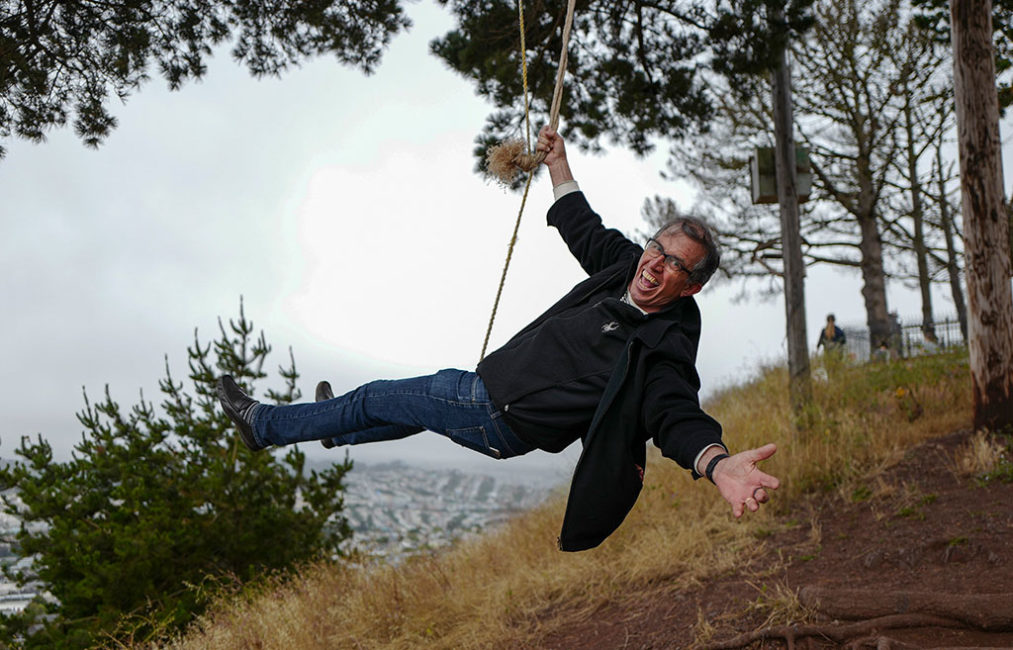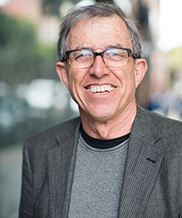Drop Dead Happy

Blog Post by Davis Masten
mediaX Distinguished Visiting Scholar
When I was first appointed the chair of the Presidents’ Circle of the National Academies, I was asked by then NAS president, Ralph Cicerone, what impact I wanted to make. I said four things. First, whatever they needed me to do. Second, I wanted to help the Academies with communications, as I had spent three decades in developing and researching design and communications. Third, I wanted to help regarding climate change and the environmental communications. I’d already served on the advisory committee of the Division of Earth and Life Studies of the Academies, chairing their communications subcommittee. Fourth, I wanted to help the Academies communicate multicultural American audiences and if and when appropriate, and communicate with them effectively. I chaired at the time, Cheskin, the largest multicultural strategy and research business in the USA. While I did those things, I never would have guessed that 10 years later, when my 2 year term was over that I would have found an entirely new passion. Longevity.
Longevity is like many issues I ran into at NASEM, what I thought was often incorrect. It was humbling. The reality was different and a lot more interesting than I ever expected. And the most important questions were still being formulated. A longevity question that I find drives me, is what will people do with the extra decades of life? My concern is that it is without good role models, people will find their ripe old age is miserable.
Let me provide a bit of context, I was in meetings at the National Academies of Medicine where the experts were discussing that half of the kids born today will make it to 125 years old. To be clear, there is currently no one alive on the planet that is 125. We all know people living examples of what an active 80 or even 90 year old can be. For instance, a friend, Martin, is a 99 year old who downhill skied 100 days in the 2019 season. Martin is an inspiration. But 125 years old? What is quality of life at 80, 100, 110 or 125?
Audrey du Grey at SENS claims that the first person to live to 1,000 is probably already alive. Ray Kurzwell at Google wants to live to over 200. I am deeply concerned with what people are going to be doing to make their lives meaningful in their eldest years. And who is going to pay for them? The project for my remaining years focuses on taking the key learnings about how to live a successful meaningful life and do just that. If I learn things that are worthy of passing along, then I will, but for the past 4 years I have lived in Lake Tahoe, doing my best to live vibrantly. My project I call Drop Dead Happy. I’ve kept it under wraps.
My guiding example on this is my Dad. He died at 76. (I am 69). The night before he died he was at a party. Just over a cold, he told partygoers that he’d not felt so good in 20 years. Next morning, on the golf course with some friends, he took a backswing and fell back into a lake. A doctor in the next foursome was immediately on the scene and said he was beyond help. My Dad Dropped Dead Happy.
Drop Dead Happy is a simple idea. I want my life span and my health span to give out on the same day. Preferably a day I am happy. (While wealth span is of significance, I want my wife and family to enjoy the money that continues beyond me)
Happy is a choice, although my mom said I popped out that way. I have no Polyanna notion that I have to be happy all the time. If you live long enough everyone deserves to sing the blues.
There are three main components of DDH.
1. Creativity
2. Exercise & Diet
3. Sociability
I will explore these in greater depth in future blogs.
 Davis Masten’s life changed dramatically after he was read Last Rites. At the time Davis was the co-chair of the Presidents’ Circle of the National Academies of Sciences, Engineering and Medicine. He had also just finished two terms of the Advisory Committee for the Earth and Life Studies division of the National Research Council. There he chaired the communications subcommittee on climate change, oceans, air, water, stem cells, life sciences, etc. At the time he also chaired Quantified Self Labs and served on the board of directors of Mattson & Co, among other companies.
Davis Masten’s life changed dramatically after he was read Last Rites. At the time Davis was the co-chair of the Presidents’ Circle of the National Academies of Sciences, Engineering and Medicine. He had also just finished two terms of the Advisory Committee for the Earth and Life Studies division of the National Research Council. There he chaired the communications subcommittee on climate change, oceans, air, water, stem cells, life sciences, etc. At the time he also chaired Quantified Self Labs and served on the board of directors of Mattson & Co, among other companies.
Davis switched his focus to developing a lifestyle called Drop Dead Happy.
For over 30 years, Davis was Catalyst and Chairman of Cheskin. Cheskin, based in Silicon Valley pioneered the area of Design Research and Multicultural Customer Experiences. Clients included 3M, Disney, P&G, HP, Lucasfilm, Microsoft and Pepsico. In 2007, Cheskin was sold to WPP.
Feature Image: Christopher Michel